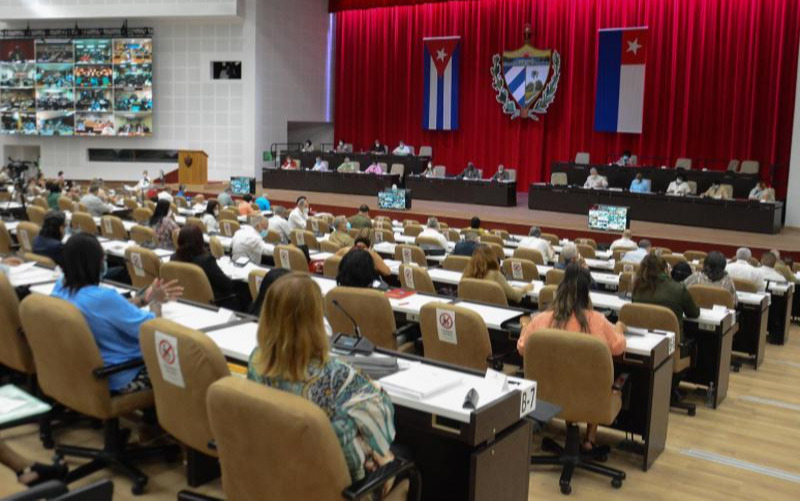
These have been intense days of debates that reflect the commitment of each deputy to the issues that concern the advancement of the nation. Photo: ACN
By María Josefina Arce
The Seventh Ordinary Period of Sessions of the Ninth Legislature of the National Assembly of People's Power begins its debates, preceded by an exhaustive analysis by the deputies of important documents concerning a better functioning of society.
During the last two days, the legislators examined four proposals for new laws related to the judicial system, covering the Courts of Justice, the Criminal Process, the Administrative Process and the Procedural Code.
These documents were arrived at after a wide and deep consultation with the legal sector organizations, deputies and universities. The population was also able to express its criteria and suggestions through different channels, as is customary and is part of the participatory democracy that characterizes us.
In this respect, the President of the Parliament, Esteban Lazo, affirmed that this whole process allowed enriching and strengthening the regulations, besides demonstrating the importance of social participation in each of the analyses of the legislative body.
According to the information provided to the parliamentarians, 3,295 proposals were received regarding the four bills. Sixty-six percent of them were accepted.
These norms seek a modern legislation, which respects and defends the characteristics of our judicial system and the rights and security of citizens.
The Cuban Minister of Justice, Oscar Silvera (in the photo) emphasized that these proposals are born from the best judicial practices and from a deep diagnosis of our weaknesses and deficiencies.
They are aimed at achieving greater agility, transparency, better exercise of guarantees and due judicial process, as required by the Constitution endorsed two years ago by the vast majority of the population.
The aim is to improve the way justice is administered, because, as specialists point out, justice goes beyond the application of the law, it requires an integrated vision of the circumstances, of many elements, it is more than a technical-professional vision.
At the center of the analysis of these two previous days, there was also the updating of the Guidelines of the Economic and Social Policy of the Communist Party, adopted at the Sixth Congress of the party organization, in 2011, and which are aimed at updating the Cuban economic model for the development of the country and the improvement of the standard of living of the population.
They have been intense days of debates that reflect the commitment of each deputy to the issues that concern the advancement of the nation and the concerns and worries of the people, whom they represent.

